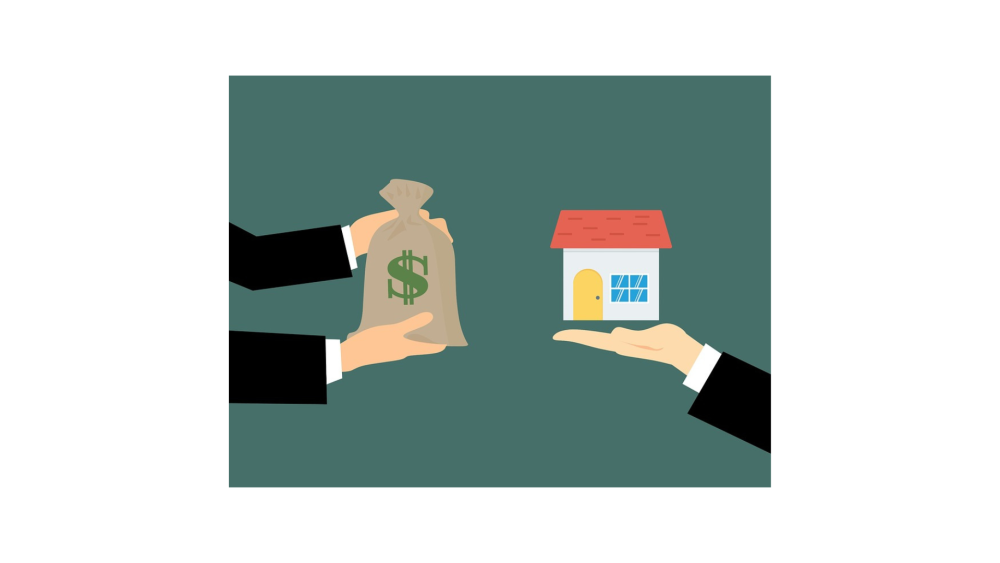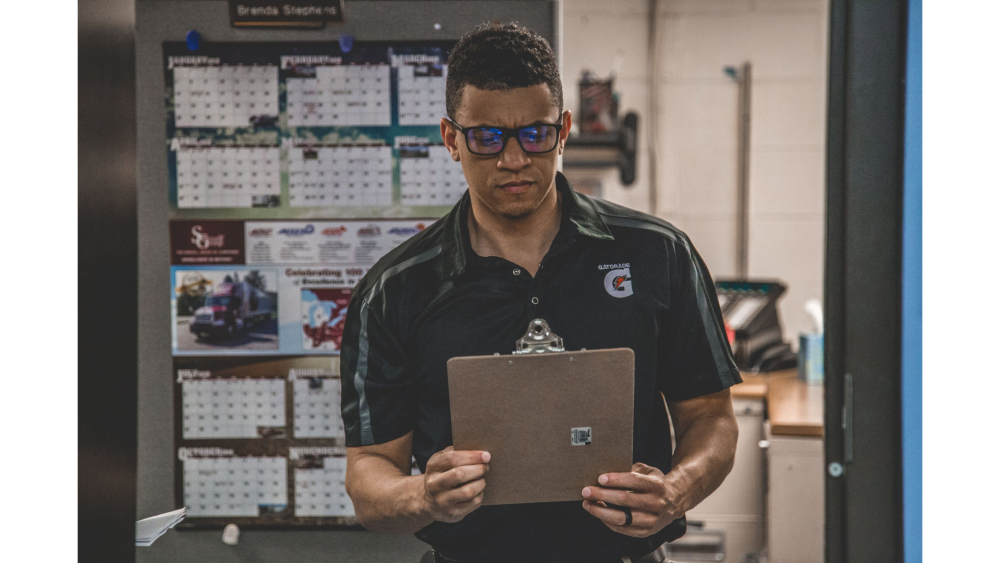For most people, their home is their single largest investment. But unlike other investments, a home can be filled with memories and sentimental attachments (as well as many, many years of junk, but we’re not judging).
Deciding to sell might be difficult and the very first step is to determine whether or not you are really ready to take that leap. Although it can be hard to leave one house behind, it helps to remember that there is a different adventure and possibly a new home just around the corner.
Plus, you will finally get those closets cleaned out. Win-win, right? If you decide that selling is the right move, follow our easy step by step guide which will save you time and headaches. Not to mention it will help you get top dollar for your property.
Here is a quick overview of the process, or read further for the entire, in depth article.
HIRE A REAL ESTATE AGENT
Find someone you trust and enjoy working with, they are going to be your representative and advocate.
PRICE YOUR HOME TO SELL
Get a CMA (comparable market analysis). Talk to your agent about values and trends in the local market.
SET YOUR TIMELINE
Plan repairs and projects, hire contractors if needed. Declutter.
HOME INSPECTION / REPAIRS
Consider a home inspection to identify potential issues if you are not handy. Do repairs and updates or hire a handyman for minor issues.
SET THE STAGE / CLEAN
Put your best foot forward with a clean house and neat landscaping.
LIST YOUR HOUSE
Begin marketing, add to MLS. Accept showings and be flexible.
ACCEPT OFFER / CLOSE
Make your home available for inspections as needed. Pack and start moving before settlement. Call utility companies, but keep everything on and insurance current until settlement. Bring any documents, keys, alarm codes, garage door openers to settlement.
FIND THE RIGHT REAL ESTATE AGENT
First, let me say that I totally understand why you think you can sell your house yourself.
Everyone hates spending money, but there are some things in life (like toilet paper) that you just should not skimp on.
At first, it seems simple enough – list your house on one of those huge real estate sites, stick a sign in the yard, get a buyer, and boom! House sold.
But your home is likely your largest asset, and it makes sense to hire a professional to help you avoid costly mistakes and pitfalls. If you were investing that amount of money in the stock market, you’d hire a consultant, wouldn’t you?
Not only that, but the buyer is likely going to have an agent representing them. Would you defend yourself in a court of law? Probably not - you’d hire an attorney to represent your best interests and to fight for the best possible outcome.
The point is, the greater the stakes, the more crucial it is to have skilled representation. But if that doesn’t sway you, let’s get to the heart of it.
The main reason to sell a home yourself is to save money, right? I mean, it’s probably not because you want to do a ton more work, so let’s assume that’s driving this decision.
What if I told you that you’d potentially make more money if you hired a real estate professional?
According to the National Association of Realtors, the average price of a home sold by a real estate professional in 2023 was $405,000 compared to an average For-Sale-By-Owner price of just $310,000.(1)
That’s a difference of 30.65%.
Wait, that means you will actually make more money if you sell your house with a realtor. 30% more money on average. Weird.
That’s like 30,000 cups of coffee at Dunkin Donuts (or 120 cups if you like Starbucks).
Just kidding. We would never take sides on something as serious as coffee.
If “money-talks” isn’t enough reason to work with an agent, consider what a good agent really does for you.
If you think an agent is just the person who stands in your kitchen greeting buyers during an open house, then you’re missing 99% of what an agent does.
A good agent makes sure you are protected every step of the way. They will help you with the contracts, the negotiations, and all the little things you never knew (or wanted to) about a real estate transaction.
Working with a great agent will help you walk away with the most money for your home in the shortest period of time.
Now that you are convinced (you are, right?), please read the first sentence again carefully.
You do not need “a” real estate agent.
You need the “right” real estate agent.
This is very important and choosing the agent that works best for you is going to determine whether you have a good or a bad experience.
So what makes the right agent? So glad you asked...
Firstly, an agent is a fiduciary, not a functionary. But what does that mean exactly?
A functionary is someone who you hire to perform a task. A contractor or a landscaper or your mechanic - these are all examples of functionaries. They perform a specific service for a fee, but ultimately, that is the end of their duty to you as the customer.
A fiduciary, on the other hand, is someone who puts your interests above all else during every aspect of the transaction. A fiduciary will not just explain the process, they will be experienced and knowledgeable and will offer advice to guide you through to the end. They will ask questions to get to the heart of the matter and will make sure that the decisions you make help you reach your goals.
But above all else, the one thing you absolutely must have is an agent who is trustworthy, honest, knowledgeable and experienced.
Find someone who is responsive and listens to you and with whom you enjoy spending time. Remember, you will be spending quite a lot of time with this person and they are going to help walk you through what is probably the largest purchase you will ever make.
Your cousin or best friend’s sister might practice real estate, but are they all of these things? Are you comfortable sharing personal financial details with someone within your circle of friends?
If you need a realtor in PA...we know a few who are pretty great.
Click here to meet the team and contact us.
PRICE YOUR HOME TO SELL
I know your home is priceless – but in order to sell it, you’re going to have to think about it more objectively.
What is your home worth?
You might think it is the appraised value, and that does factor in later, but really, your home is only worth whatever a buyer is willing and able to pay for it.
What that amount is can fluctuate greatly depending on the current market conditions in your area.
So how do you know what that amount is?
The best way is to ask your real estate agent to run a Comparative Market Analysis (CMA). This is a free report which compares your property to others in the area that are of a similar size, have similar features, and are currently on the market or very recently sold.
Your super, fantastic, wonderful agent (which you picked after reading step 1) will know the market in your area and will be able to walk you through this report step by step.
A real professional will take you through the CMA in detail and can answer any questions or reservations you may have. They will help you set the price based on these facts.
The CMA will get you in the ballpark for price, but to really pin down the price range, your agent is going to have to see your house.
Think of pricing your home like this – you are at the store buying apples. Some apples are pristine, shiny and unblemished.
In another pile they have the same kind of apples, only these were picked up off the ground, they are a little less appetizing, though still good.
The shiny new apples cost a little more than the dropped ones, but they are both priced similarly. They don’t charge $20 for one and $0.50 for the other.
Neither one of these types of apples are better than the other, different buyers will prefer different kinds of “apples” depending on their needs. Some will be willing to pay extra for the shiny apples and others will want to pay less and don’t mind a few bruises.
If they picked a price in the middle and all the apples cost the same amount, which ones do you think would sell first?
But priced correctly, the apples will sell to the right buyer, at an equal rate.
You can understand supply and demand with this same analogy. If it’s a bad year and all the apples are dropped or wrinkly, but there are less of them, they will all cost more. Similarly, when it’s a good year and there are tons of shiny apples, you’ll pay less for a pristine apple.
The same goes for houses. Until an agent sees your house in person, they can’t say whether it is a shiny apple or not, but a great agent will make sure they take every single aspect of your home into account before they suggest a price range.
You can go with a middle of the road agent, but why would you leave money on the table or take longer to sell your home than needed?
Let us help you price your home right to get the most from your sale. Contact us anytime.
SET A TIMELINE FOR LISTING YOUR HOME
Don’t let an agent pressure you into listing your home right away if this time frame doesn’t work for you.
Your home may be ready for sale immediately, but there may also be some things you want to do before your home is ready for the market.
If you completed step 1, you star agent can help you decide what projects will help sell your home and which are not worth your time.
Here’s a few things you can start immediately once you are ready to sell:
FIND AN AGENT
If you haven’t completed step 1, that is your first task. A great agent really does know what goes into selling a home and they will help you through the entire process, even before your home hits the market.
Don’t be afraid to interview several agents if you don’t feel warm and fuzzy with the first one you speak to. Ask agents to come to your home and do a listing presentation.
Ask for references or read reviews online - see what others are saying about the agents you interview. What kind of questions have they asked you? If they haven’t asked any, how can they understand your goals and motivations?
PLAN & PREPARE
Once you have an agent, outline a plan. Talk about tasks and projects that you may want to complete before the home is listed.
Be realistic in evaluating both the condition of your home as well as the amount of time and money you are willing and able to spend.
DECLUTTER & STAGE
Now you can finally get to that closet. And while no one ever wants to do this, you will thank me when it comes time to pack.
Start decluttering ASAP, especially if this is going to take a while. Pack up whatever you don’t need and if you can, get it out of the house, or at least out of sight.
Staging your home before selling is a strategic move to enhance its appeal. It allows potential buyers to visualize themselves living there, highlighting your property’s strengths and minimizing its flaws. Staged homes often sell faster and for higher prices, offering a return on your investment.
Additionally, staging helps your home stand out in online listings, where most buyers begin their search. By creating a neutral and welcoming environment, it reduces distractions and encourages buyers to linger. Ask your agent for advice on how to do this successfully.
HOME INSPECTION & REPAIRS
Consider getting a home inspection, especially if you are not that handy. I know this goes against traditional wisdom and the buyer typically requests a home inspection after you’ve accepted an offer, but if you can provide not only a completed home inspection but also a list of completed repairs, your home becomes that much more desirable. Think of it like providing a “Carfax” for your home.
Buyers can see up front what repairs need to be done and you identify issues that need to be repaired so you can budget for them. Part of what scares buyers away is uncertainty. A pre-sale home inspection can be an especially good selling tool for an older home.
If your home doesn’t need that much work or you have a good maintenance record, the repairs needed may be minimal.
Your agent can help you decide where to spend your repair budget.
Sometimes all you need is a simple coat of paint, other times the repairs can be more in depth.
It makes sense to address larger issues before your home is listed.
You won’t always need to do a repair before you sell. Let’s face it, sometimes there just isn’t the budget for a new roof, but knowing the things a buyer might find when they do their own home inspection is invaluable.
SET THE STAGE & CLEAN
Clean like your mother-in-law is coming over for the first time. Seriously, the cleaner the house, the faster it will sell.
Hire a pro if you can, especially to clean carpets.
Pay special attention to smells. If you need help removing a smell, ask your agent for recommendations. Your house might have a faint odor, even if you can’t smell it.
Pets and smoke are common odors, but food smells can be just as strong. Be conscious of what you cook, especially before a showing.
Buyers cannot “see” your house when they can’t stop “smelling” it and you do not want them referring to your home as the “Hoagie House”.
And for the love of all that is stinky, please, please, please do not try to cover up last night’s fish fry with a pine scented candle - or any other candle for that matter.
Your goal here is the absence of smell. You have no idea what smells will be appealing to the buyer, or if scented candles give them a headache.
Stay organized. Remove clutter from counters and surfaces and pick up toys. Have you seen the show Hoarders? It doesn’t matter if your stuff is clean or nice, less is always more when it comes to showings.
Add a few finishing touches such as nice table cloths or throw pillows to help set the stage. You don’t need to get crazy here, use what you’ve got.
You may want to remove or lock up items that are personal or valuable. Be prepared to take your prescription medicine with you when you leave. Make yourself a little “go bag” to make it easy.
Add more lighting if necessary. A bright, well-lit home always shows better than one that is dark. Open the blinds and let in natural light – but remember to wash your windows, especially if the blinds have been closed for the past ten years!
Don’t forget the exterior and the lawn – weed the flower beds, get some fresh mulch and keep the grass neatly mowed.
Selling in winter? Keep the sidewalks and driveway shoveled and ready for showings.
A good agent will give you feedback that is honest and will help you stage your property.
Almost no one can view their own home with a critical eye and your agent should handle any potential issues with tact and sensitivity.
For a quick sale...you may want to pack away your creepy dolls.
LIST YOUR HOUSE & GET READY TO SHOW
Keep your house ready for company every day. Make a “to do” list if you need to and have the house ready to go when you leave in the morning. Last minute showings are par for the course and if you are ready, it could mean the difference between getting that buyer or not.
QUICK TIP: Keep a laundry basket handy and before you leave for work, throw all your everyday “clutter” in it and take it to work. The buyers will never be the wiser.
Find a place for your pets during showings. We know you love your furry friends but some buyers might be afraid of dogs or allergic to cats. If you have a “ghost” cat that never appears, it may be ok to leave them home, but keep in mind your pet’s comfort as well as that of the buyers.
If you have a friend or family member who can take your pets temporarily, that’s great. If not, take them for a walk or a ride during showings when possible.
It will make the appointment more comfortable for your buyers and will be safer for your pets.
Most of all, try to be flexible. Remember what it was like when you were shopping for a new home.
Buyers need time to fall in love with your house the same way you did. Give them the time and space to do so.
ACCEPT AN OFFER
Negotiations start with a buyer’s offer to purchase your home.
You don’t have to accept the offer as is and your agent should explain every aspect of the offer to you as well as the impact of certain clauses.
The main details you will need to think about are purchase price, buyer financing, closing date, inspections, special allowances and additional contingencies.
INSPECTIONS
Once you and the buyer reach an agreement, there is still a lot to do before closing.
The buyer may have opted for inspections and there may be other contingencies. Your agent should make sure that all of the deadlines are met and they will help you negotiate, if necessary.
Do your best to make your home available for all inspections so you can sail through this phase quickly.
The buyer may have to meet other contingencies during this time period as well. They may have to apply for a mortgage and provide a commitment by a certain date. They will order title and ultimately will schedule settlement.
GET READY TO MOVE
Now is the time to really start packing. Consider boxing up everything you do not need daily and set yourself a deadline for packing up each room.
Choose a moving date and hire movers.
Maintain your home insurance through the day of closing. You own the house and are responsible for it until closing is completed.
Keep the house clean and if you damage something, fix it.
Buyers will do a pre-settlement walkthrough and you don’t want them to find new damage on the day of closing.
If you have concerns about this, talk to your agent about getting a home warranty that is transferable to the buyer. This can protect you during the selling phase and can make your home more attractive to a buyer since they will benefit from warranty as well. Most warranties are payable at settlement so they are easy on your pre-sale budget.
Call your utility companies, i.e. electric, gas, cable, etc. and let them know you are moving. Do not turn off service. All utiltities must be turned on for the final walkthrough and will be transferred into the buyer’s name that same day - they should not be disconnected.
FINAL WALKTHROUGH & SETTLEMENT
Make a list of what to bring on the day of settlement and keep in contact with your agent. She will tell you what dates are important and should help you through the process.
Your home should be completely empty (unless you’ve made an agreement with the buyers to leave certain items) and it should be reasonably clean. This final walkthrough gives the buyers a chance to see your home without the furniture and to inspect for damage that may have been caused while you were moving out.
And for goodness sake - be out of the house before the final walkthrough. The day before is ideal. You may not “finish up” after the closing. You will simply delay closing and in many cases, it will be impossible to close that same day if you are not completely moved out.
Review your settlement costs on the day of closing for accuracy and voila!
Home sold, easy-peasy.
Now all you have to do is find a new place to live…don’t worry, we’ve got instructions for that, too!














